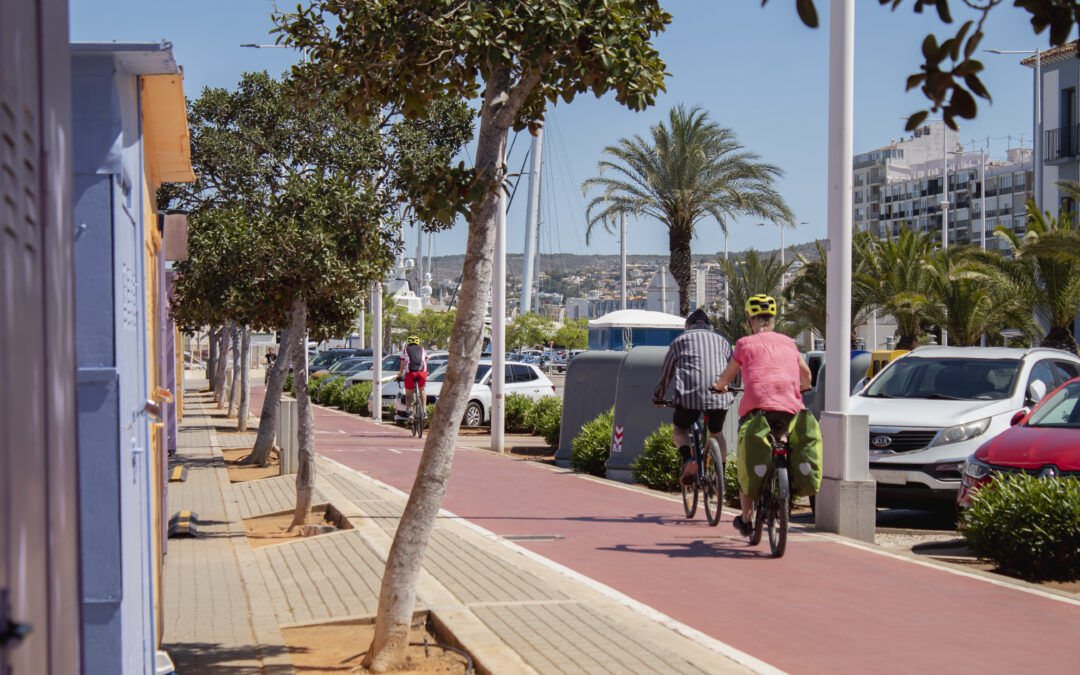The World Tourism Organization defines sustainable tourism as “tourism that takes full account of current and future economic, social and environmental impacts to meet the needs of visitors, the industry, the environment and host communities.”
The guidelines for sustainable tourism development and sustainable management practices apply to all forms of tourism in all types of destinations. The principles of sustainability refer to the environmental, economic and sociocultural aspects of tourism development, and an appropriate balance must be established between these three dimensions to guarantee its long-term sustainability.
Tourism can contribute, directly or indirectly, to the sustainable development goals defined in the 2030 Agenda.
Source: ONU Tourism
![]()
Sustainable tourism not only contributes to the local economy, but is also linked to national poverty reduction goals. Promoting entrepreneurship and small businesses is essential to strengthening the economy and offering opportunities to all residents. Sustainable tourism can empower disadvantaged groups, especially women and youth. Supporting local initiatives can ensure that the benefits of tourism are distributed equitably and fairly.
![]()
Tourism can stimulate agricultural productivity by promoting the production, use and sale of local products in tourist destinations and their full integration into the sector’s value chain. Income growth in local communities can lead to more resilient agriculture while adding value to the tourism experience.
![]()
La entrada de impuestos procedentes del turismo pueden reinvertirse en atención y servicios de salud.
![]()
Tax revenues from tourism can be reinvested in health care and services.
![]()
El turismo es uno de los sectores con un mayor porcentaje de mujeres empleadas y emprendedoras, puede servir para liberar el potencial de las mujeres y ayudarlas a participar plenamente y a emanciparse en todos los ámbitos de la sociedad.
![]()
Tourism is one of the sectors with the highest percentage of women employees and entrepreneurs. It can serve to unleash the potential of women and help them fully participate and emancipate themselves in all areas of society.
![]()
Siendo un sector que requiere una aportación energética sustancial, el turismo es un acelerante del cambio hacia las energías renovables. Aportando e implantando soluciones energéticas nuevas e innovadoras.
![]()
Being a sector that requires a substantial energy contribution, tourism is an accelerant of the change towards renewable energies. Providing and implementing new and innovative energy solutions.
![]()
El desarrollo del turismo necesita infraestructuras públicas y de origen privado de calidad y un entorno innovador para su desarrollo. Esto facilita e incentiva una industrialización más sostenible, algo necesario para el crecimiento económico, el desarrollo y la innovación.
![]()
The development of tourism needs quality public and private infrastructure and an innovative environment for its development. This facilitates and encourages more sustainable industrialization, something necessary for economic growth, development and innovation.
![]()
A city that is not equipped for its citizens is not equipped for tourists. Sustainable tourism has the capacity to improve urban infrastructure and universal accessibility, to promote the regeneration of decaying areas and to preserve cultural and natural heritage, assets on which tourism depends.
![]()
The tourism sector adopts sustainable consumption and production practices, playing a significant role in the transition towards sustainability. To achieve this, as stated in goal 12.b of this objective, it is essential to “Develop and apply instruments to monitor the effects on sustainable development, in order to achieve sustainable tourism that creates jobs and promotes culture and local products.
![]()
Tourism contributes to climate change and is affected by it. Therefore, it plays a leading role in the global response to climate change. Reducing energy consumption and using renewable sources can help address one of the most pressing challenges of our time.
![]()
Coastal and maritime tourism depends on healthy marine ecosystems. Tourism development must be part of integrated coastal zone management to help conserve and preserve fragile marine ecosystems and serve as a vehicle to promote the blue economy.
![]()
Sustainable tourism plays an important role, not only in the conservation and preservation of biodiversity, but also in respecting terrestrial ecosystems, due to its efforts to reduce waste and consumption, the conservation of flora and fauna indigenous, and awareness-raising activities.
![]()
Tourism is made up of billions of encounters between people from diverse cultural contexts, the sector fosters tolerance and multicultural and interfaith understanding, thus laying the foundations for more peaceful societies.
![]()
Due to its cross-sector nature, tourism has the capacity to strengthen public-private partnerships and engage multiple stakeholders – international, national, regional and local – to work together to achieve the SDGs and other common goals.
For all these reasons, from the Dénia City Council we are firmly committed to sustainable tourism. Through public policies and initiatives, we seek the transformation of a sector as important in our community as tourism. Our commitment is aligned with the Sustainable Development Goals (SDG), promoting a tourism model that is not only respectful of the environment, but also promotes socioeconomic development and territorial cohesion.

